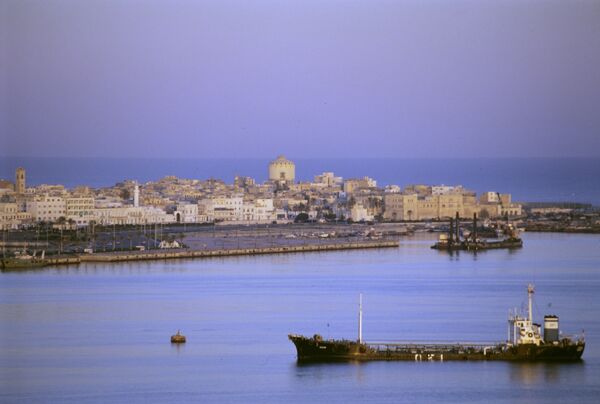CAIRO, September 8 (RIA Novosti) - The son of Libyan leader Muammar al-Gaddafi has denied media reports that the man convicted of the 1988 Lockerbie plane bombing is on his deathbed, a London-based Arab newspaper said.
Abdel Basset Mohamed al-Megrahi was convicted in 2001 over the bombing, and controversially released from a Scottish prison last month on humanitarian grounds. He has been diagnosed with prostate cancer, and international media reports have said he has only days to live.
Gaddafi's son, Saif al-Islam Gaddafi, told the Asharq Al-Awsat newspaper in a phone interview: "This is not true, he was sick and was released for humanitarian reasons. He is now in a good and stable condition."
"Thank God, he is in good health when compared to his state prior to his return to the country," Gaddafi said.
He also confirmed that the Lockerbie bomber's case had been raised in several meetings with British officials.
"Of course I did not give up on al-Megrahi. We sought with all our power to return al-Megrahi home to his family. The file was on the table of all my meetings with them [British officials]. We are pleased by his return, and we are confident that if an investigation is carried out in the future, his innocence will be proven," the paper quoted him as saying.
Al-Megrahi, a former Libyan intelligence officer, was found guilty of organizing the bombing of Pan Am flight 103 on December 21, 1988. The plane exploded over the Scottish town of Lockerbie, killing 259 people on board and 11 on the ground, 170 victims of the bombing were U.S. citizens.
He was sentenced to a minimum of 27 years behind bars.
In May, Libyan authorities officially requested the transfer of the 57-year-old to Libya on health grounds.
Al-Megrahi's release and subsequent return to Libya, where he was cheered at the airport by a throng of supporters, sparked a global wave of criticism.
Libya accepted responsibility for the Lockerbie bombing in 2005 and said it would pay some $2.7 billion in compensation to the families of those who died in the bombing. The move led to the lifting of sanctions against Libya and was instrumental in the restoration of ties between the North African state and the West.


